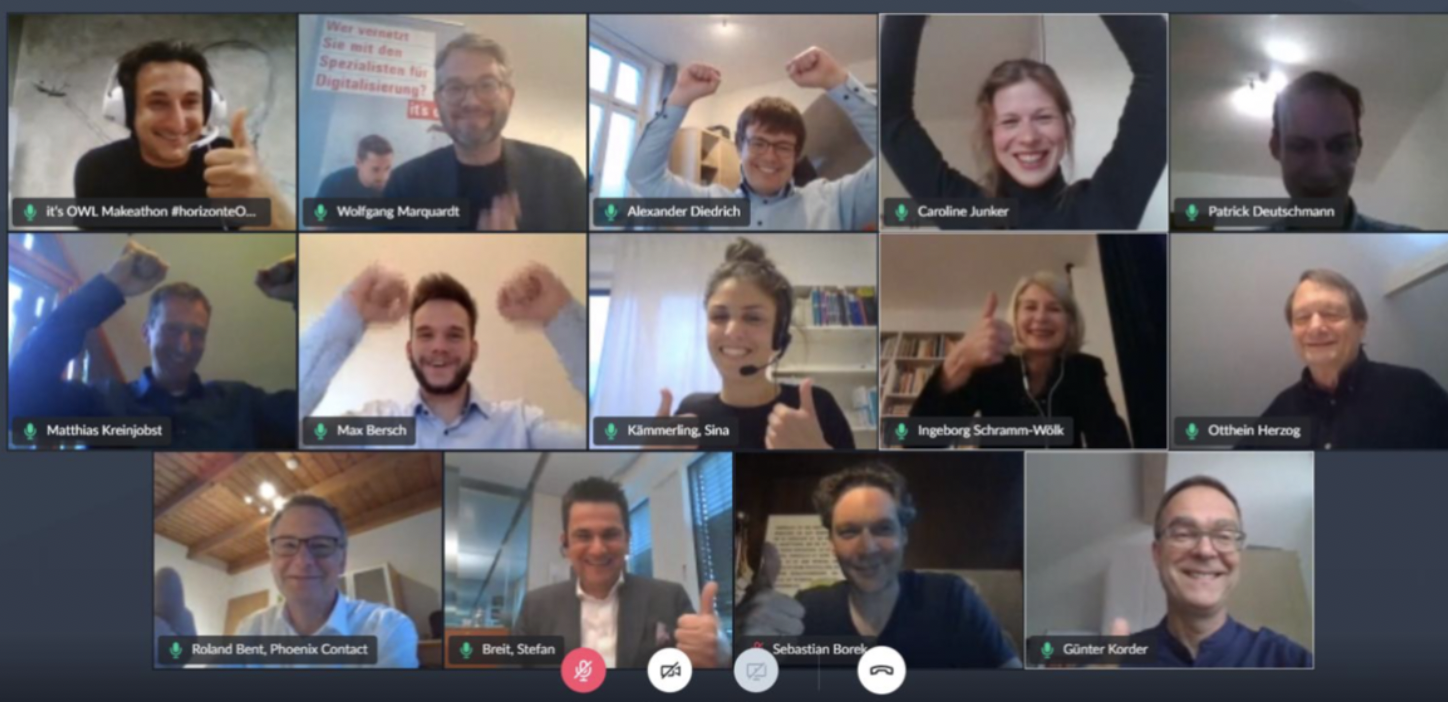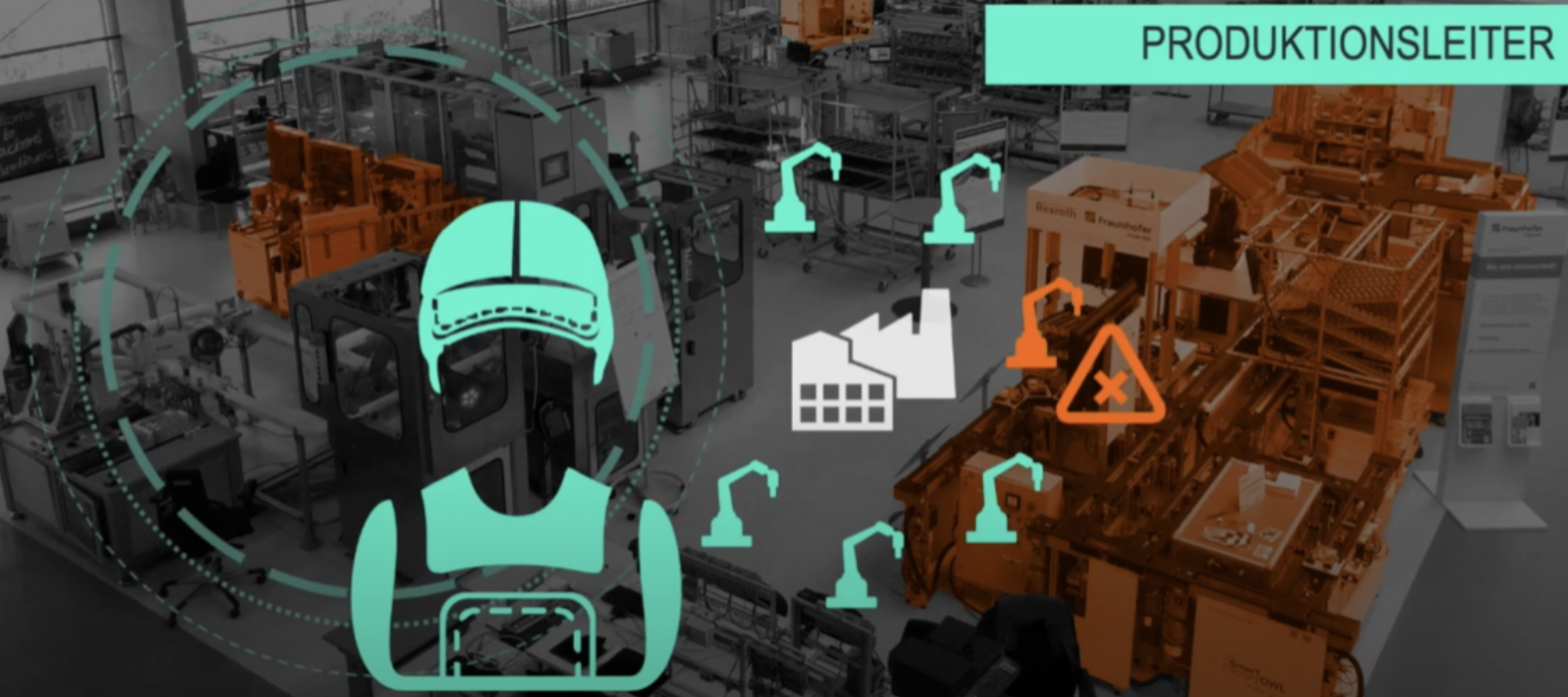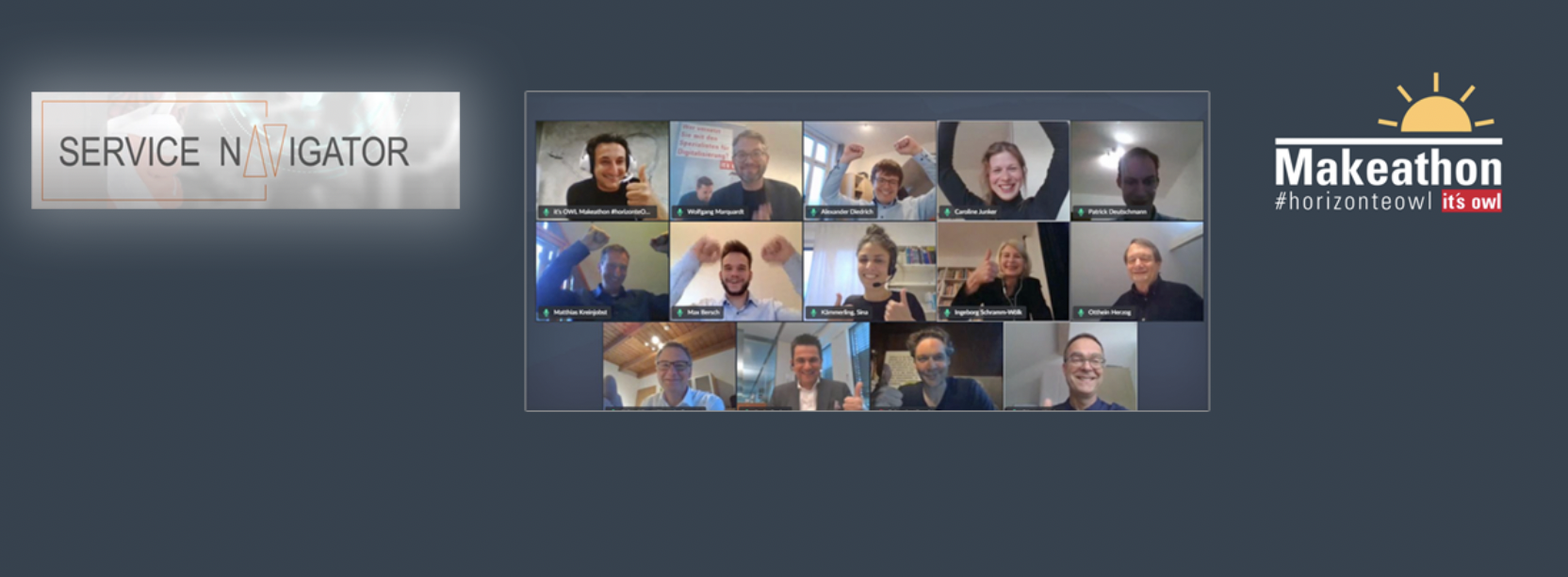€1 million prize money for "ServiceNavigator"
If the Covid-19 pandemic has shown one thing, it is that people in the East Westphalia-Lippe region are adaptable. With given caution, they have been able to react to the dynamic situation and thus flatten the infection curve. But how does the economic upswing succeed after the Corona crisis? Among other things, the "HorizonteOWL" makeathon organised by the it's OWL cluster management proved that OWL's inherent innovative power is now benefiting the region: the ideas competition called for innovative solutions from the approximately 200 participants to the current challenges in numerous economic sectors - the idea of the »ServiceNavigators« finally won out: the programme is intended to revolutionise services in mechanical engineering and minimise downtimes. Behind it are six professionals and students from business and research - including from Fraunhofer IOSB-INA in Lemgo.
This weekend saw the end of the Makeathon "HorizonteOWL", in which almost 200 participants answered the call and 31 teams worked on a total of 15 challenges from companies. A commitment that was also praised by the Minister of Economics and Digital Prof. Dr. Andreas Pinkwart: "The Makeathon is a great competition. This is because the winning idea is to be put directly into practice. We are happy to provide funding from the state for this. it's OWL is once again doing pioneering work for North Rhine-Westphalia with the Makeathon."
This pioneering work was evident in all the project groups that worked feverishly during the Makeathon. Fraunhofer IOSB-INA was involved in seven of the 31 teams. On Friday evening, the winners were announced: the ServiceNavigator - a tool for fault diagnosis and correction for machines and systems - will now be put into practice with one million euros in development and start-up capital. The challenge givers for this solution approach were the companies GEA Group G. KRAFT Maschinenbau GmbH and WP Kemper GmbH. The system guides plant operators step by step from the symptoms of a malfunction to an exploration of possible causes to direct video or telephone contact with the right technician or spare parts supplier. This makes it an extremely attractive tool, especially for medium-sized companies, to avoid downtimes or even standstills and to make plant documentation available digitally and decentrally. One of the developers of the solution, Alexander Diedrich M.Sc., is a scientist in the field of machine learning and artificial intelligence at Fraunhofer in Lemgo. The expert system for self-diagnosis, which is used in the ServiceNavigator, is based on an idea that Diedrich has already been working on in his doctoral thesis since 2018: "Up to now, I have only used fault cause analysis of hybrid systems in simulations - with the ServiceNavigator, this can be applied for the first time," says the young scientist, who has been researching at Fraunhofer in Lemgo for 6 years and would like to link the results of his work based on the Makeathon even more closely to his doctoral thesis: "Of course, I hope that this will allow me to directly apply the contents of my doctorate in practice. Whether in a start-up environment or as a research project is of secondary importance for the scientist," says Diedrich.

This pioneering work was evident in all the project groups that worked feverishly during the Makeathon. Fraunhofer IOSB-INA was involved in seven of the 31 teams. On Friday evening, the winners were announced: the ServiceNavigator - a tool for fault diagnosis and correction for machines and systems - will now be put into practice with one million euros in development and start-up capital. The challenge givers for this solution approach were the companies GEA Group G. KRAFT Maschinenbau GmbH and WP Kemper GmbH. The system guides plant operators step by step from the symptoms of a malfunction to an exploration of possible causes to direct video or telephone contact with the right technician or spare parts supplier. This makes it an extremely attractive tool, especially for medium-sized companies, to avoid downtimes or even standstills and to make plant documentation available digitally and decentrally. One of the developers of the solution, Alexander Diedrich M.Sc., is a scientist in the field of machine learning and artificial intelligence at Fraunhofer in Lemgo. The expert system for self-diagnosis, which is used in the ServiceNavigator, is based on an idea that Diedrich has already been working on in his doctoral thesis since 2018: "Up to now, I have only used fault cause analysis of hybrid systems in simulations - with the ServiceNavigator, this can be applied for the first time," says the young scientist, who has been researching at the Fraunhofer in Lemgo for six years and would like to link the results of his work based on the Makeathon even more closely with his doctoral thesis: "Of course, I hope that I can directly apply the contents of my doctorate in practice. Whether it's in a start-up environment or as a research project is of secondary importance for the scientist," says Diedrich.

The reaction to the victory last Friday was just as East-Westphalian and reserved: "First of all, I was happy for my team and myself - we sat together for a long time in the video chat and made plans for the future of the ServiceNavigator. However, we can't say anything about the immediate steps in the next few days, as the financing and organisation are still open - but we are excited and highly motivated to help write the second chapter of the ServiceNavigator success story.
 Industrial Automation branch INA
Industrial Automation branch INA 
